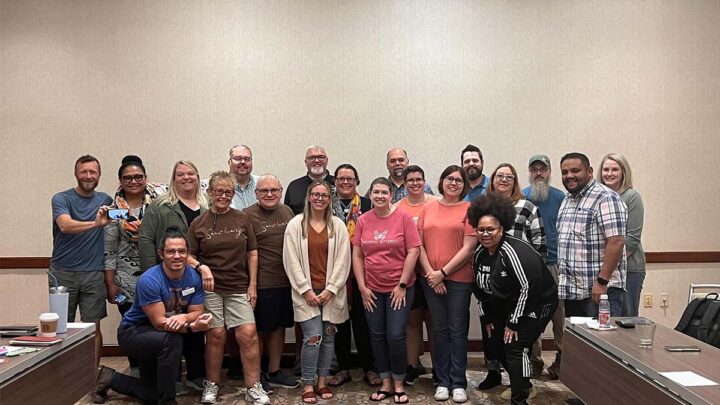On September 26-28, the Rev. Jason Villegas, our Conference Director of Youth Ministry, went to a gathering of other youth ministry leaders from other United Methodist Annual Conferences. He reflects on the gathering in this series of posts. Read part 1 and part 2.
While together, we also thought about family systems theory and how, whenever a single piece of the family is changed, it affects everyone.
We see this most clearly with the schism we are experiencing and many churches either leaving to become independent or join the Global Methodist Church. (In my opinion, it is less a divorce and more like the so-called Prodigal Son saying, “drop dead and give me my half of the inheritance,” leaving some like the sad dad, hoping they’ll come back and some like the embittered older brother) However, we can also see family systems theory at work in the needed change that’s happening. In the same way that parents have a hard time adapting to their children’s changing patterns of living, so too does the United Methodist Church have a hard time adapting to youth who are more active in their world and less likely to silently sign their name to a church role sheet unless they know that it will better their lives. For many reasons, the UMC is experiencing the pains of a changing family structure.
The average age of worshippers in the UMC is older than my parents, and the average youth in the UMC has or may soon leave the church. But the average is not everything. My fellow directors of youth ministry taught me that in many ways. We are yet alive. The Holy Spirit is not done with us.
Even while I could talk a bit more about the ways Spirit showed up or other things we talked about, I’ll leave you with this:
Our time together was both soberly awake to the challenges that youth and church ministry hold, and it also dreamt of possibilities. It reflected our collective pain and the trauma of the young members of our church family systems. The time was also healing. It was both filled with lamentation and also, therefore, freed up for the guilt-free fiesta that comes when you’ve shared the weight of the burdens you’ve silently been carrying. It was a time of being burnt out and consumed by God’s fire that quenches while it warms and enlightens. But for me, most importantly, it was a time when we could celebrate life in service together, having a celebration of the promise of life like we have at a funeral — a service of death and resurrection, in which we know that it may feel like Good Friday, and we may not know how long we shall endure the descent into hell of Holy Saturday, but we also know that eventually, thanks be to God, Sunday’s coming. Thanks be to God. Amen.

